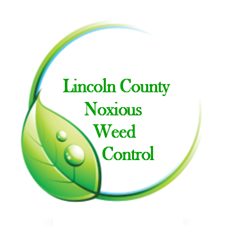~ Home buyers and prospective landowners should know if there is a
noxious weed problem before they buy Real Estate. ~
Landowners are responsible for controlling noxious
weeds on their property, per RCW 17.10.
Noxious weeds are non-native plants introduced into
this area through human action. Because of their aggressive
growth and lack of natural enemies, these species
can be highly destructive, competitive, or difficult to control
by cultural or chemical practices.
Noxious weeds can reduce crop yields, destroy native
plant and animal habitat, damage recreational opportunities,
clog waterways, decrease property value, poison
humans and livestock, and create fire hazards.
Control means to prevent all seed production in noxious
weeds, and to prevent the dispersal of plant structures
which propagate and spread noxious weeds.
A landowner may control noxious weeds by chemical
(spraying herbicides); biological (releasing insects); mechanical
(tillage, pulling and mowing); and cultural
means (planting desirable vegetation, fertilization, over seeding,
and using goats or livestock).
If a landowner fails to control noxious weeds, the county
may take steps to control the weeds and then charge the
landowner for the cost, plus a $500 penalty. If that is not
paid, the county will place a lien on the property.
* There are 31 noxious weeds found in Lincoln County.
* In the state of Washington, the presence of noxious
weeds on residential property is considered a property
defect and must be disclosed.
Home buyers and prospective landowners should contact the Lincoln County Noxious Weed Control Board to:
Review the history of noxious weeds found on a parcel of land
in previous seasons. The Weed Board maintains files on problem parcels, especially if a Notice of Violation has been sent.
Weather permitting, take a Weed Walk with one of the Weed
Board staff on the property you plan to purchase. Noxious
weeds will be identified, and options for effective control will
be discussed. Hopefully, the home buyer or prospective
landowner will learn the extent of weed-control obligations
involved in the real estate purchase.
If noxious weeds are found on the property, Weed Board staff
will suggest an integrated approach for effective control that
may include spraying herbicides on some areas, releasing
biocontrols on others, as well as cultivating and over-seeding
areas of infestation. There is more than one way to skin a
cat, and there often are many effective options for noxious
weed control.
The Lincoln County Noxious Weed Control Board will:
*Provide landowners with information and assistance to achieve
high rates of weed control and voluntary compliance with state
law.
*Survey and map noxious weeds countywide to identify the
extent of the noxious weed problem, and to detect weeds at an
earlier and more-preventive stage.
*Provide educational services to the public through
publications, exhibits and presentations to schools and civic
organizations.
*Conduct research on the best methods for weed control and
eradication in Lincoln County.
Real Life Stories – It pays to do the research first!
A Dream Home by Coulee Dam ~
A young couple planned to build their “dream home” on a
parcel overlooking Lake Roosevelt and Coulee
Dam. They made a $10,000 down-payment
in the fall with a large balloon payment
planned for the following spring.
They started to draw up construction plans
for the dream home when they were contacted
by the noxious weed board. There were noxious weeds on the property,
and spraying herbicides would cost them $3,000.
Even though there was no residence yet on the property, the buyer said the
seller and realtor should have disclosed the presence of noxious weeds.
The buyer claimed there was fraud, and then defaulted on the balloon payment.
The weed board was willing to consider several options for control
besides spraying, but the buyer was adamant the seller should pay.
Ultimately, the buyer lost the property and their down-payment, and never
built their dream home near Coulee Dam. Had they done the proper research,
there may have been a different outcome.
A Horse Farm by Carp Lake ~
A retired couple from California dreamed of a horse farm in rural Lincoln County. They found 20 acres near Carp Lake that had beautiful meadows surrounded by pine trees. In walking through the lush green meadows, they found a plant they were not familiar with. It looked like the pretty plants on the front cover of this brochure.
They contacted the Weed Board and took a Weed Walk to determine if
they had noxious weeds on the property. Apparently, the pretty plants were Leafy Spurge, a noxious weed that is poisonous to all livestock except sheep and goats. When they were told that the white sap inside Leafy Spurge can cause hives and a rash if it comes into contact with a persons skin, they realized that pulling the weeds is risky and not effective control. The white sap can also cause blindness if it comes into contact with a persons eye. Effective biocontrol’s for Leafy Spurge in Lincoln County have not yet been found, although some exist in Montana and other places. Spraying herbicides and grazing goats are about the only effective controls locally.
The couple decided to buy property elsewhere since they dreamed of a horse farm, not a goat ranch.

